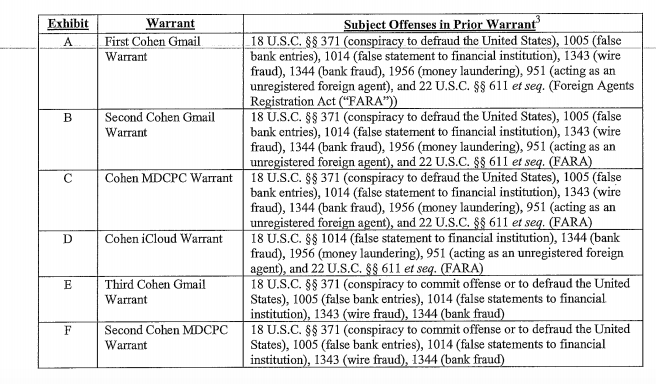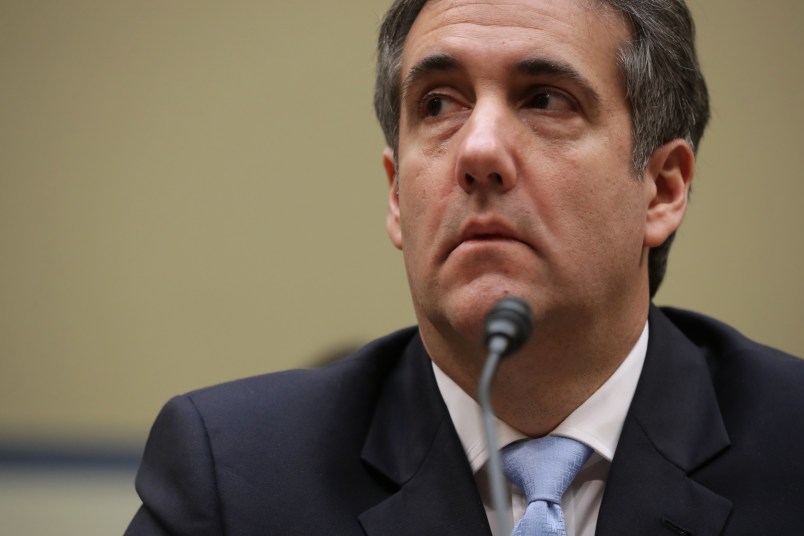The FBI has been investigating Michael Cohen since at least the middle of 2017, a search warrant unsealed Tuesday revealed.
The search warrant is an April 8, 2018 application to search the premises and two cell phones linked to Cohen. The warrant refers to an earlier search warrant obtained for Cohen’s email accounts in July 2017.

Another court document unsealed Tuesday revealed that at the early stages of the FBI’s probe into Cohen, investigators were looking into allegations of unregistered lobbying. Those allegations (known as FARA violations or Foreign Agents Registration Act violations) were not among the crimes to which Cohen pleaded guilty last year.

The April 2018 search warrant application preceded the raid on Cohen’s home, office and hotel that month. The FBI also sought permission to search Cohen’s safety deposit box at a bank, as well as two iPhones linked to him.
Much of the warrant application covers allegations of financial crimes unrelated to President Trump that Cohen eventually pleaded guilty to. A section of the application titled “The Illegal Campaign Contribution Scheme” — presumably a reference to the hush money payments Cohen facilitated for alleged Trump paramours — is redacted, which suggests that aspect of the Cohen investigation remains ongoing.
The July 2017 warrant, and other 2017 warrants to search Cohen’s emails, were obtained as part of special counsel Robert Mueller’s investigation. According to the 2018 application, Mueller’s office went on to refer “certain aspects” of its Cohen investigation to prosecutors in Manhattan. As part of that hand off in February 2018, the special counsel’s team provided to the Manhattan investigators Cohen’s emails and the results of other warrants it had obtained.
In addition to detailing Cohen’s alleged bank fraud scheme, the newly unsealed warrant application reference Cohen’s efforts in the early months of Trump’s presidency to leverage his ties to the President into lucrative consulting contracts. Those previously disclosed contracts include $600,000 Cohen received from AT&T, $1 million he received from a Swiss pharmaceutical company, and his contract with a Kazakh bank. Many of the companies that hired him say his services provided little-to-no-use to them.
With its first warrant in July 2017, the FBI obtained emails from two Cohen accounts sent or received between in January 2016 and July 2017. In August 2017, the FBI obtained a warrant for a Cohen-linked iCloud account. In November 2017, the FBI successfully sought to broaden the timeline of Cohen emails it was seizing, and also obtained permission to search another Cohen email account linked to his consulting work.
After Mueller handed off some aspects of his Cohen probe to the U.S. Attorney’s Office in Manhattan, the Manhattan prosectors continued to seek warrants to seize his emails.
Read the April 8, 2018 application below:






